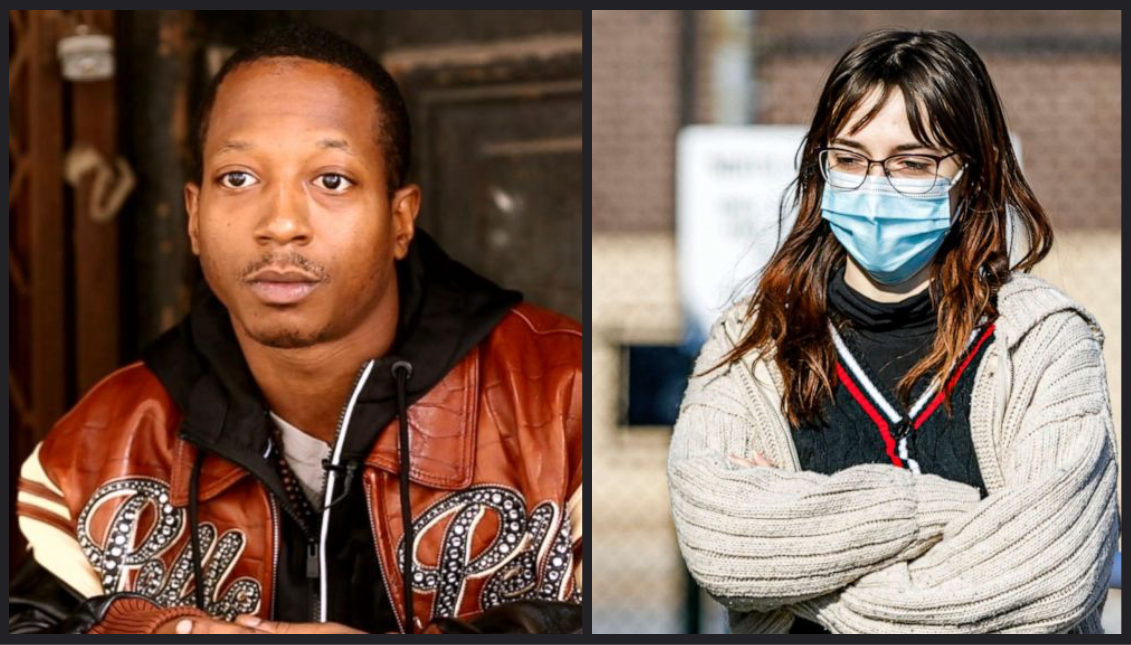
How is stealing Nancy Pelosi’s laptop during an insurrection better than fighting for racial justice?
Hint: It’s not.
“Ma, I can’t take it anymore.”
This is what 22-year-old Kalief Browder said to his mom on June 5, 2015, the day before he died by suicide.
Browder, a young Black man from the Bronx, NYC, was arrested in 2010 after being accused of stealing a backpack. Although he was only 16 years old at the time, he was swiftly sentenced to three years at Rikers Island, a prison that’s notorious for its violent treatment of inmates.
Browder received no trial, spent more than 400 days in solitary confinement, and suffered physical abuse at the hands of guards as well as fellow inmates.
When he finally came home, the trauma of what he experienced at Rikers was simply too much for him to handle, and he took his own life.
The story of Kalief Browder serves to highlight the rampant racism that exists within the American justice system. By themselves, these stories are heart-wrenching and outrageous, but they stand out even more when compared to instances in which white criminals receive no more than a slap on the wrist for crimes of the same degree or higher.
Kalief Browder stole a backpack at 16, spent 3 yrs at Riker's Island without trial.
— Lilith Goode (@LilithGoode) January 21, 2021
Riley Williams stole a laptop from Speaker Pelosi's office and tried to sell it to Russia. She was released to her mother.
Justice in America is not blind. It sees exactly what it's doing. pic.twitter.com/rwP9SMkf8a
Glaring examples of this can be seen in the cases of two pro-Trump insurrectionists, Jake Angeli and Riley Williams.
Angeli, self-proclaimed “Q-Anon Shaman” refused to eat the regular food he was provided in prison and demanded organic food, claiming that he would become very sick if he consumed food that was not organic. A Magistrate Judge ordered U.S Marshals to work with his attorney to resolve the issue, and his requests were granted.
Riley Williams participated in the theft of House Speaker Nancy Pelosi’s laptop during the attack on the Capitol building on Jan. 6.
Riley June Williams is accused of stealing Pelosi's laptop in the US Capitol attack to sell to Russia and was released from custody.
— Eliza Orlins (@elizaorlins) January 22, 2021
As a public defender, I represented a man held in on bail for stealing cough syrup and toothpaste from Duane Reade.
Two. Systems. Of. Justice.
Williams, who allegedly planned to sell this laptop to a Russian intelligence service, was arrested on Monday Jan. 18, and is facing charges of theft, trespassing and disorderly conduct.
On Thursday, Jan. 21, U.S. Magistrate Judge Martin Carlson ordered Wiliams to be released into her mother’s custody, while she awaits trial in federal court on Monday Jan. 25, in D.C. Williams will have to wear an ankle monitor and can only leave the house to go to work and for some other court-approved reasons.
During Thursday’s federal court hearing, Williams’ attorney Lori Ulrich argued that Trump’s incitement to his followers is to blame for the actions of her client.
“It is regrettable that Ms. Williams took the president’s bait and went inside the Capitol,” she said.
Once the news of Williams’ release broke on Twitter, many users made comparisons between her case and the case of Kalief Browder, to make the point that America has “two different justice systems.”
Twitter users also mentioned Sandra Bland, Taylor Enterline and Red Fawn Fallis.
Bland, a 28-year-old Black woman from Texas, was pulled over in 2015 for a simple traffic violation. Three days later, while under police custody, it was reported that she died by suicide.
To her family and friends, the story did not add up.
RELATED CONTENT
Bland was described by her loved ones as having a big and bright personality, and she was starting a new job soon.
While she attempted suicide once before after suffering a miscarriage, at the time of her arrest, she wasn’t experiencing any form of suicidal ideation.
A friend of Bland said that she had been through much harder times than “sitting in jail for three days.”
To this day, Bland’s case has produced more questions than answers, and in 2018, HBO produced a documentary about her story.
Taylor Enterline, a 21-year-old West Chester University student, was arrested after protesting in D.C in response to the murder of George Floyd.
Taylor Enterline -a Black woman arrested during a protest was held on a $1,000,000 bail.
— Xilla (@BlogXilla) January 22, 2021
Riley June Williams - a white women broke into the capital, stole Pelosi’s laptop and tried to sell it to Russia got a lecture and went home under her mom Custody pic.twitter.com/WUekVXNT2N
Enterline was arrested and her bail was originally set at $1 million dollars. It has since been reduced to $50,000, and through the help of GoFundMe, she’s been able to raise $35,000.
Red Fawn Fallis, a tribal citizen of the Oglala Sioux Tribe, was a water protector arrested at Standing Rock during resistance to halt the Dakota Access pipeline.
Red Fawn Fallis got 57 months in prison for a weapons charge protesting at Standing Rock.
— Lakota Man (@LakotaMan1) January 22, 2021
Insurrectionist Riley Williams broke into Speaker Pelosi’s office, and stole her laptop, with plans on selling it to Russia. She was released to her mother’s recognizance. pic.twitter.com/52LHIY4B1G
Fallis was charged with several charges, including civil disorder and possession of a firearm and ammunition by a convicted felon. After serving 57 weeks in prison, she is expected to be released this March.
Riley Williams committed insurrection and theft during a riot that shook the whole nation, and is currently detained at her mother’s house.
Meanwhile, people like Browder, Bland, Enterline and Fallis have faced torture, negligence, extremely high cash bails and even death for much lesser crimes. These stark differences can only be attributed to white privilege and inherent biases within the justice system.











LEAVE A COMMENT: